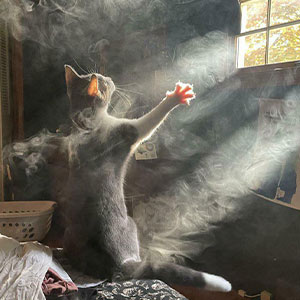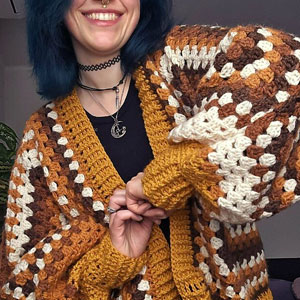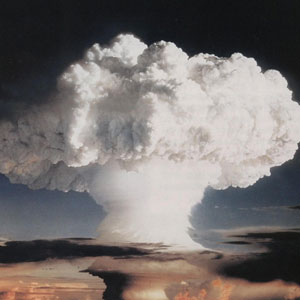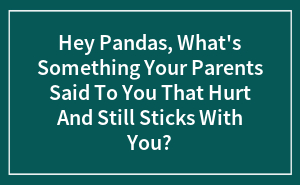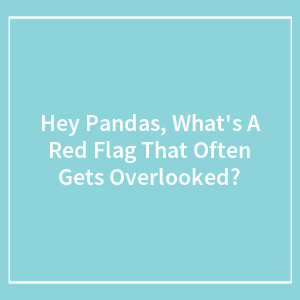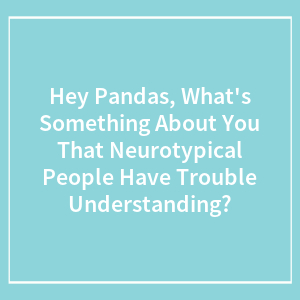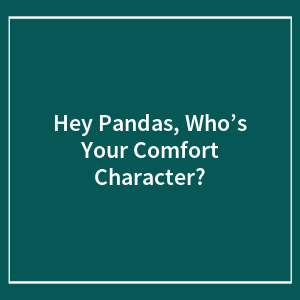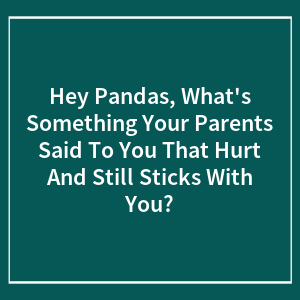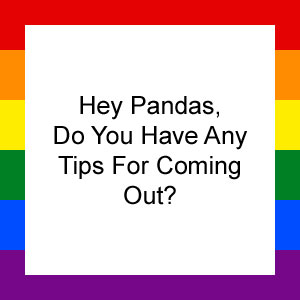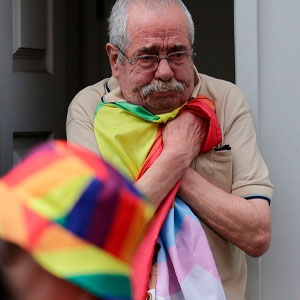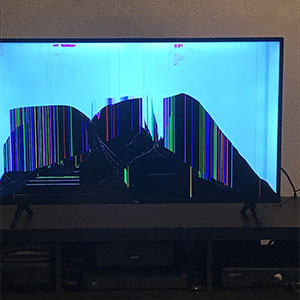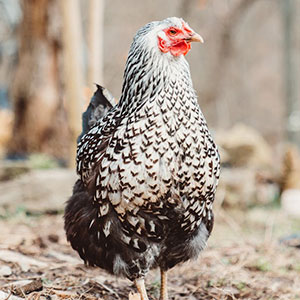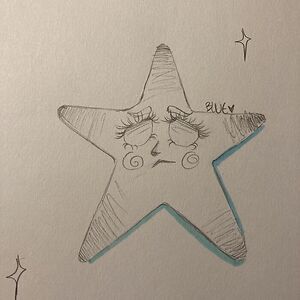
Join the Fun!
Join 1.2 million Panda readers who get the best art, memes, and fun stories every week!
Thank you!
You're on the list! Expect to receive your first email very soon!
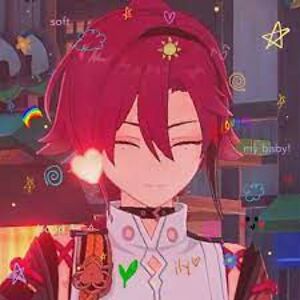
Makenzie McNeal
Community Member

Yahoo, Nice to meet you!



Moea Cabral reply
Naked children playing around “on the street”, topless women (much more braless, first), long haired men, and well accepted “trans-women” or feminized men (that we call Mahū, or several other ways).
I come from a place called Polynesia, which is a collection of little islands and atolls, as large as Europe in scale, spread in the Pacific Ocean. This place had been colonized by several Europeans, around the 18th century, but there are many books that were written since and some behaviors still persist. And it’s good, very good.
In fact, there was no such thing as body-shaming, and when the first Europeans came there, they were mainly shocked by how free the population in Tahiti was. They were so shocked by the sexual freedom in there that they wanted to make forbidden the traditional dance that we fortunately continue pridefully today. And we have no problems teaching 5yo children to dance “as sexy” (because it is not sexual!) as this beautiful girl right there:
Although we are in the 21st century, now, when I grew up on one of those savage atolls (by savage I mean isolated and natural), I was mostly naked, but I can still see some little kids playing naked in the most isolated parts of Polynesia. Some women still live topless and the traditional dance even encourage this behavior, this lifestyle, if I can say. Also, men are free to wear whatever length of hair they want. Really, it’s even part of the culture. Longer your hair are, for a man, closer he is to his culture, Polynesian (women here love to free their long hair!).
Oh, and, something that most of the developed world had apparently a hard time to accept: feminized men. Guess what? The persons who tend to act like women while being born with male genitals are part of the society, here. They’re even considered as a whole, with their specific name, and they are well appreciated amongst women’s activities. This approval is not exclusive to Polynesia though, it happens in other places in South-Asia, like the Philippines, or in some places in South-America as well, like Brazil.
Sexuality is… clearly taken differently than many other countries, if I can say. Polynesians have a history of respect towards the nature of things and especially the Body. Its nature. Our statues still have phallic representations or our men still dance half naked (where it’s funny to see how Europeans (this happened again last week!) react to our uninhibited dances).
By the way, for those who don’t know, the word Tattoo comes from the Tahitian language (Tattoo comes from the word Tatau). So, Maōri, Polynesians, and many other Pacific Islanders like Samoans practiced the tattoo, and still today, as a way to represent their belonging to the culture, which is very far from the historical representation of the criminal the tattoo can have among the developed world.













Moea Cabral reply
Naked children playing around “on the street”, topless women (much more braless, first), long haired men, and well accepted “trans-women” or feminized men (that we call Mahū, or several other ways).
I come from a place called Polynesia, which is a collection of little islands and atolls, as large as Europe in scale, spread in the Pacific Ocean. This place had been colonized by several Europeans, around the 18th century, but there are many books that were written since and some behaviors still persist. And it’s good, very good.
In fact, there was no such thing as body-shaming, and when the first Europeans came there, they were mainly shocked by how free the population in Tahiti was. They were so shocked by the sexual freedom in there that they wanted to make forbidden the traditional dance that we fortunately continue pridefully today. And we have no problems teaching 5yo children to dance “as sexy” (because it is not sexual!) as this beautiful girl right there:
Although we are in the 21st century, now, when I grew up on one of those savage atolls (by savage I mean isolated and natural), I was mostly naked, but I can still see some little kids playing naked in the most isolated parts of Polynesia. Some women still live topless and the traditional dance even encourage this behavior, this lifestyle, if I can say. Also, men are free to wear whatever length of hair they want. Really, it’s even part of the culture. Longer your hair are, for a man, closer he is to his culture, Polynesian (women here love to free their long hair!).
Oh, and, something that most of the developed world had apparently a hard time to accept: feminized men. Guess what? The persons who tend to act like women while being born with male genitals are part of the society, here. They’re even considered as a whole, with their specific name, and they are well appreciated amongst women’s activities. This approval is not exclusive to Polynesia though, it happens in other places in South-Asia, like the Philippines, or in some places in South-America as well, like Brazil.
Sexuality is… clearly taken differently than many other countries, if I can say. Polynesians have a history of respect towards the nature of things and especially the Body. Its nature. Our statues still have phallic representations or our men still dance half naked (where it’s funny to see how Europeans (this happened again last week!) react to our uninhibited dances).
By the way, for those who don’t know, the word Tattoo comes from the Tahitian language (Tattoo comes from the word Tatau). So, Maōri, Polynesians, and many other Pacific Islanders like Samoans practiced the tattoo, and still today, as a way to represent their belonging to the culture, which is very far from the historical representation of the criminal the tattoo can have among the developed world.



 Dark Mode
Dark Mode 

 No fees, cancel anytime
No fees, cancel anytime 

